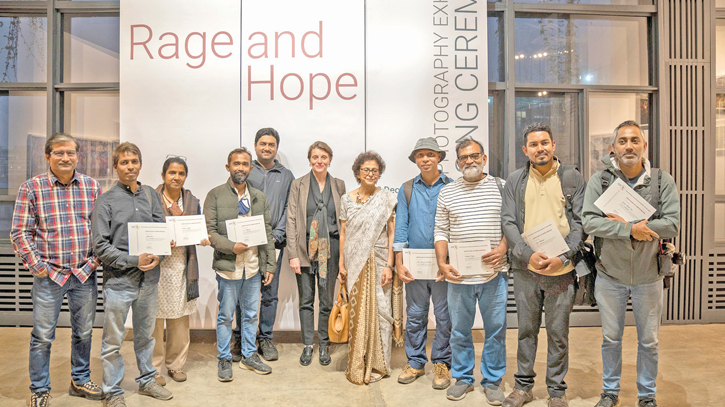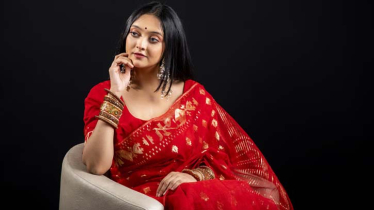
Photo : Collected
Marking the 75th anniversary of the Universal Declaration of Human Rights (UDHR), the Office of the United Nations Resident Coordinator in Bangladesh and Drik Picture Library jointly organised a photo exhibition titled 'Rage and Hope' that began on December 14 and concluded on Monday at 8 pm at Drik Gallery in the capital, reports UNB.
The UDHR, which marked its 75th anniversary this year on December 10th, enshrines the inalienable rights of human beings, regardless of race, colour, religion, sex, language, political or other opinions, national or social origin, property, birth, or other status.
As a celebration of freedom of expression, the photo exhibition provided a platform for photographers to showcase their work from across Bangladesh, visually exploring expressions of the fight for the rights of women, indigenous communities, the LGBTIQ community, students, and the rights of climate-displaced communities amongst others.
Photographer and Managing Director of Drik Dr Shahidul Alam has worked on rights issues, with photography as the primary medium for many years and has selected a breathtaking collection of past and contemporary pictures from across the country.
The closing ceremony was held in the evening at DrikPath Bhobon, where United Nations Resident Coordinator to Bangladesh Gwyn Lewis, UN Special Rapporteur for freedom of expression Irene Khan, and Photographer-Coordinator of Bangladesh Garment Workers Solidarity Taslima Akhter were present with other dignitaries. The event was moderated by the curator of the exhibition, ASM Rezaur Rahman.
The Resident Coordinator expressed her appreciation for the extraordinary Bangladeshi photographers and their depiction and recognition of the inherent dignity of individuals standing up for what they believe. She added, "The equal and inalienable rights of all is the foundation of freedom, justice and peace, values that are more important than ever in today's world."
Irene Khan highlighted the power of photography and said that photographs are more powerful than words, and that is why all authoritarian regimes in the world take action against photographs. "Although most governments adhere to the Universal Declaration of Human Rights, only a few have managed to uphold it. Among these, freedom of expression is the most significant, since it ensures all other rights," she said.
Taslima Akhtar described the experience of a photograph she took after the Rana Plaza tragedy where a woman and a man died hugging each other in their final moments of life. She shared, "Going to the back of the building at the scene during that catastrophe, I found two people were hugging each other at the time of death and were probably trying to survive. I never want to forget that moment, that reality which still stays with me even after a decade. Even though it makes me uncomfortable sometimes, it gives me the strength to fight constantly."
The exhibition was open to people from all walks of life and provided an opportunity to reflect on what the Universal Declaration of Human Rights means to them.
Messenger/Shahin








